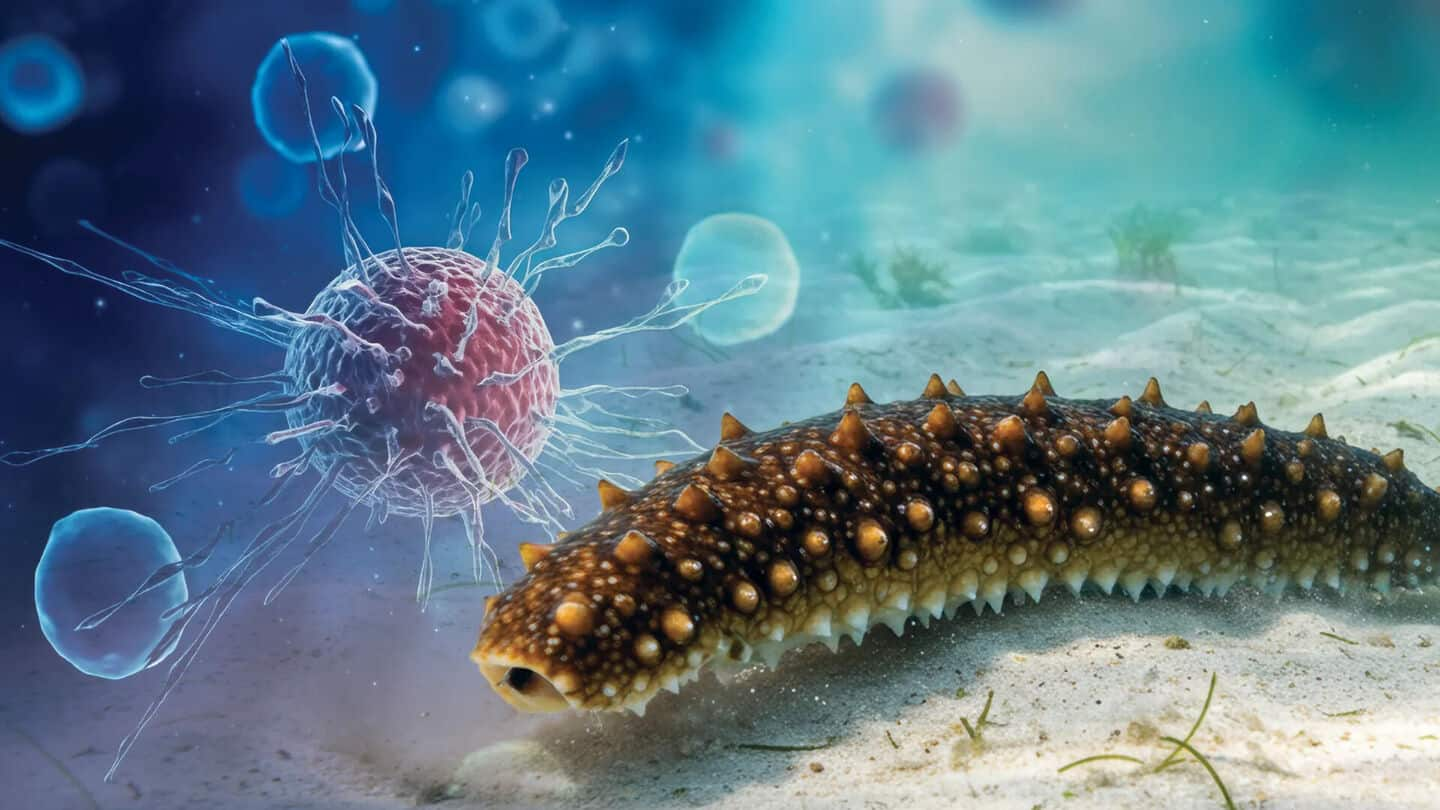
Sea cucumbers may stop cancer from spreading in your body
What's the story
A team of researchers from the University of Mississippi has made a major discovery in cancer treatment. They discovered a rare sugar compound in sea cucumbers that may help stop cancer from spreading, without the harmful side effects of conventional treatments. The study, published in the journal Glycobiology, highlights how this compound could be an important part of future cancer therapies.
Mechanism
Sugar compound blocks enzyme that helps cancer cells spread
The sugar compound, fucosylated chondroitin sulfate, is found in the sea cucumber Holothuria floridana. It works by blocking Sulf-2, an enzyme that cancer cells use to grow and spread. "This sugar essentially stops the pruning of the cellular 'forest,'" said Dr. Vitor Pomin, associate professor of pharmacognosy at the University of Mississippi. "If we can inhibit that enzyme, we are fighting against the spread of cancer," he added.
Uniqueness
Marine life produces compounds with unique structures, says Farrag
The lead author of the study, Marwa Farrag, a fourth-year doctoral student at the University of Mississippi, emphasized the uniqueness of sugar compounds in sea cucumbers. "Marine life produces compounds with unique structures that are often rare or not found in terrestrial vertebrates," she said. This highlights why these unique sugar compounds are worth studying for potential medical applications.
Enzyme function
Sulf-2 alters glycans, aiding in detachment and spread of tumors
Sulf-2 is an enzyme that alters glycans, sugar molecules on human cell surfaces that mediate communication and immune responses. When this enzyme modifies glycans, it aids in the detachment and spread of cancer cells. By blocking Sulf-2, researchers believe they could prevent tumors from invading healthy tissues. The research team also included scientists from Georgetown University who used lab testing and computer modeling to confirm the sugar's effect.
Safety
Sugar does not interfere with blood clotting
Unlike some known Sulf-2 inhibitors, this sugar from sea cucumbers does not interfere with blood clotting. "If a molecule interferes with blood coagulation, you risk life-threatening bleeding," said Dr. Joshua Sharp from the University of Mississippi. He added that this particular sugar does not pose such risks, making it a safer option for human use in potential cancer treatments.
Production hurdles
Researchers working on synthesizing the compound in lab
The main challenge in developing this sugar as a drug is its low yield from sea cucumbers. "One of the problems in developing this as a drug would be the low yield," said Dr. Pomin. He added that they have to develop a chemical route for mass production. The research team is now working on synthesizing the compound in the lab for testing on animal models, which could pave the way for cleaner and safer cancer treatments from ocean floor resources.